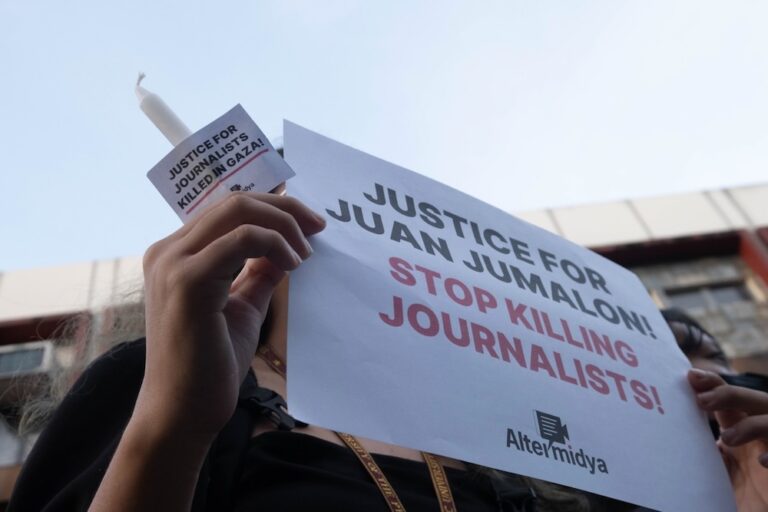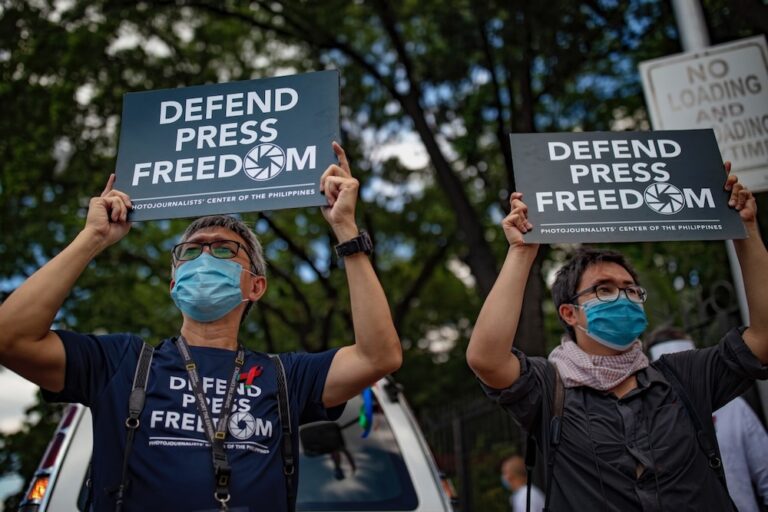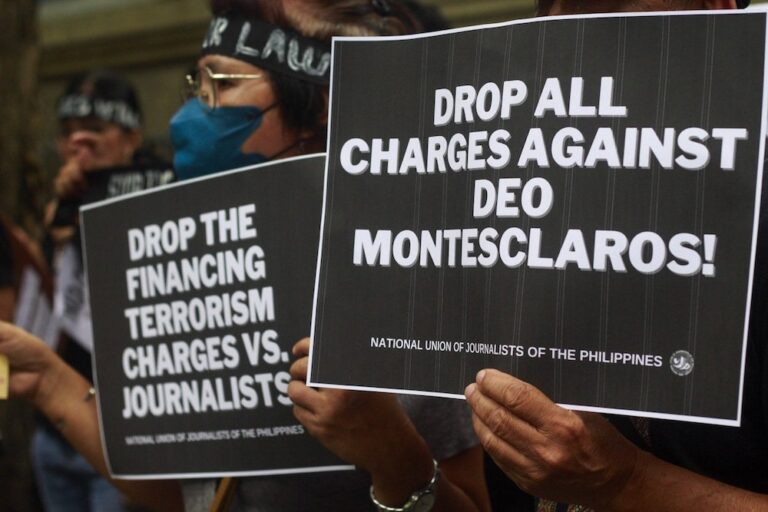(CMFR/IFEX) – On 7 April 2006, the Court of Appeals (CA) asked the Executive Department to answer the petition, submitted by a group of media organizations and journalists, questioning the government’s actions against press freedom. In a resolution written by Associate Justice Bienvenido Reyes, the appellate court gave the government 10 days to reply to […]
(CMFR/IFEX) – On 7 April 2006, the Court of Appeals (CA) asked the Executive Department to answer the petition, submitted by a group of media organizations and journalists, questioning the government’s actions against press freedom.
In a resolution written by Associate Justice Bienvenido Reyes, the appellate court gave the government 10 days to reply to the petition before it decides on a motion for a temporary restraining order (TRO) against the government’s National Telecommunications Commission (NTC).
Shortly after the issuance of Proclamation 1017, the NTC claimed that it has the authority to revoke the franchise of broadcast networks or stations found to be airing “seditious” or “rebellious” commentaries or remarks.
Respondents named in the resolution were: Executive Secretary Eduardo Ermita; Justice Secretary Raul M. Gonzalez; the Philippine National Police chief, Director General Arturo Lomibao; and NTC Chairman Ronald Solis.
The court also gave the petitioners five days to reply to the government’s comment, once it is submitted. To date, the government has not answered the petition.
The petitioners include: the Philippine Press Institute; the Center for Media Freedom and Responsibility; the Philippine Center for Investigative Journalism; Newsbreak; Probe Productions; the Center for Community Journalism and Development; and the faculty of the University of the Philippines College of Mass Communication.
On 8 March, the petitioners – including at least 73 individual journalists – lodged their petition before the CA, requesting the court prohibit the government, particularly executive-branch officials, from restraining media reporting and from intimidating journalists.
According to the petitioners, the government continues to harass media outlets, even since the state of national emergency was lifted. Petitioners added that the government’s close monitoring of publications, television and radio stations, and other acts of censorship constrict the space the press requires to do its job.


